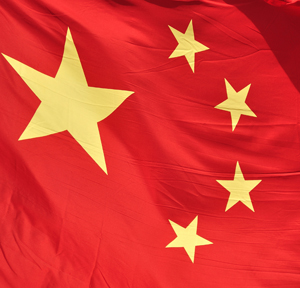Philanthropy
Guest Opinion: Charity Business In Mainland China Has Room To Improve

Editor’s note: The following article is by Cynthia d’Anjou-Brown, head of philanthropy advisory, North Asia, and family governance advisor, at HSBC Private Bank. A version of this article has appeared in the Hong Kong Economic Journal, and is republished by this website with HSBC’s permission.
Asian philanthropy is growing, fuelled in large part by a generation of Chinese self-made businessmen who desire to share some of their fortune with the less well off in society. But without proper planning, all too often their efforts can either be diminished, wasted, or worse, reflect negatively on the good name of the donor.
Philanthropic giving is a minefield: all too often the donor is willing and the need seems obvious, but the path between the two can easily turn into the road to disaster.
This is particularly true in countries with evolving charity law like China, where triangulating a course between many donors including governments, the still nascent social sector, and the broader social or environmental impact of a donation is particularly challenging.
Local communities have demonstrated poor follow-through and many philanthropists have seen their generosity re-cast in the media as self serving after an ill-considered donation.
But there are ways to avoid these traps. The process that guides effective philanthropy are familiar to any successful businessman: identify a need, work out what is required to fulfil that need, and then establish or locate an effective and trustworthy non-profit organisation to deliver one to the other.
HSBC, home of Asia’s largest wealth management operation, has been advising philanthropists for more than 60 years. The recommended first step is to define a clear focus for giving. Some philanthropists want to help an ancestral home town, perhaps fund a particular sector such as health, education or poverty alleviation.
For a donor who wanted to help underprivileged children in Gansu, our Private Wealth Solutions office suggested funding a model early childhood development centre operated by Right to Play, a well-established and respected non-profit organisation which had conducted a detailed community needs assessment including child demography, a survey of the children’s current education situation, and existing resources and support to be drawn from the community.
Maximum impact
For strategic philanthropy to maximise its impact, donors need to find ways to engage low-income communities in solving their own problems. The old adage that it is better to give a hand-up rather than a hand-out has never been more relevant.
The total impact of a well-constructed partnership with other stakeholders can be much greater than its constituent parts. HSBC has extensive experience in building partnerships that amplify the beneficial impact of a donation.
In Guizhou, China’s poorest province, HSBC helped three different donors to invest in a campaign to improve public health. One donor funded rural clinics in mountainous areas that help in early diagnosis and treatment. Another donor upgraded the water supply facilities for 10 poor villages, thus decreasing their vulnerability to contaminated water. A third donor funded neonatal care to give babies born into poverty a healthy start and a chance to overcome their disadvantaged circumstances.
Potential partners can include the local government. For example in Gansu province we have worked cooperatively with the local government to create a water reservoir to improve irrigation. The dam also doubles as a road, shortening the walking time to the local school by as much as 50 minutes each way.
But if it is desirable to maximise the benefits of philanthropy, it is essential to minimise the potential pitfalls.
China has a complicated social sector. NGOs differ in their legal status and degree of autonomy with some registered as social organizations with the government but the majority is not registered as such. Levels of charity governance, transparency and accountability for donated funds, and performance metrics are still evolving.
Due diligence is key. An experienced intermediary like HSBC will undertake a rigorous examination of proposed non-governmental organisation partners and plans, looking into the governance, financial efficiency and effectiveness of the approach or intervention to be taken. Reviewing standardised applications forms and financial statements is common practice. We have on occasion asked for an audited report for a particular project after completion or employed external technical consultants to conduct independent reviews of work in progress.
Effective philanthropy is a combination of generosity and hard-headed business sense, but with good advice and strong partnerships it can be infinitely rewarding.
